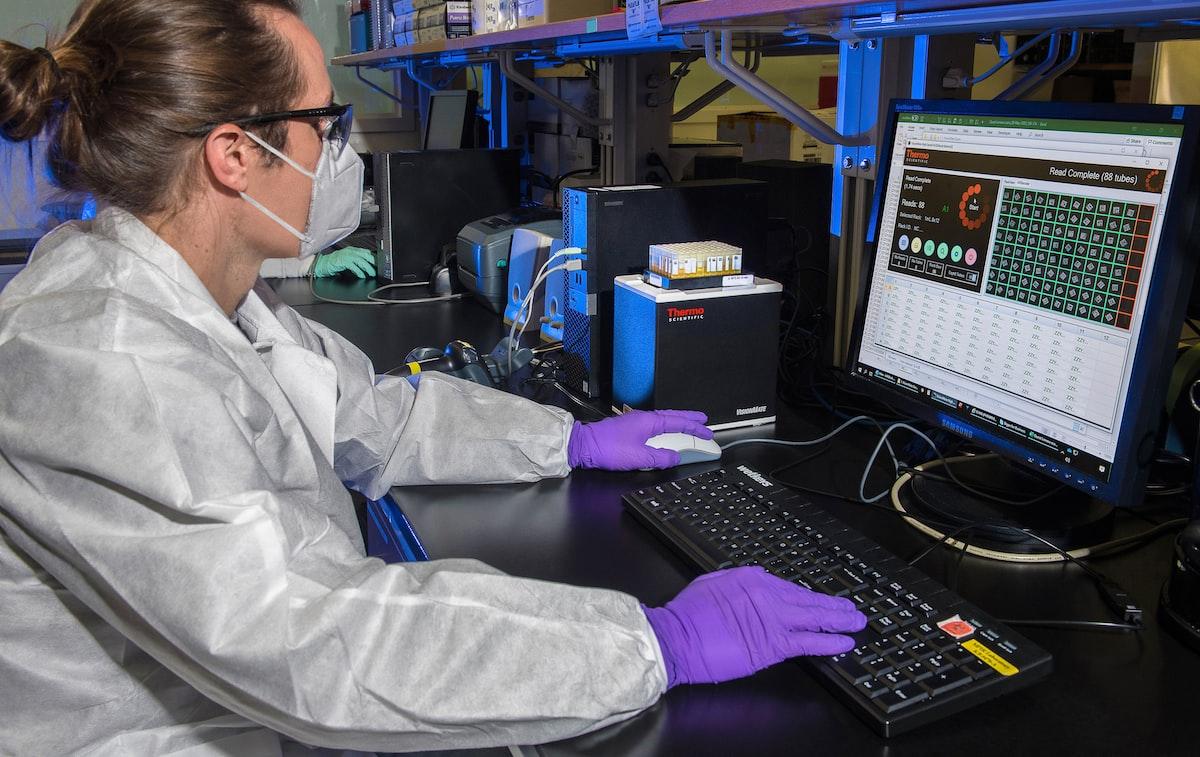Personalized Medicine and Bioinformatics: The Future of Healthcare
April 25, 2023
·Abdullah Atia

This article was co-authored in collaboration with ChatGPT.
The future of healthcare lies in the convergence of personalized medicine and bioinformatics, as these rapidly advancing fields are set to revolutionize diagnostics, treatment, and disease prevention. Personalized medicine refers to a medical model that utilizes genetic, environmental, and lifestyle factors to create tailored healthcare plans for individual patients. Bioinformatics, on the other hand, is an interdisciplinary field that combines biology, computer science, and statistics to analyze and interpret complex biological data. Together, these fields have the potential to redefine patient care and optimize healthcare outcomes.
1. The rise of genomic data
The Human Genome Project, completed in 2003, marked the beginning of a new era in genomics research. With the cost of sequencing an individual's genome dropping drastically over the years, genomic data has become more accessible than ever before. This wealth of information has paved the way for personalized medicine, as it allows healthcare professionals to better understand the genetic variations that contribute to disease susceptibility, response to medications, and overall health.
2. Bioinformatics: The key to unlocking the power of genomic data
The vast amounts of genomic data generated through sequencing technologies require sophisticated computational tools to make sense of it. This is where bioinformatics comes in, as it provides the necessary algorithms, databases, and software to analyze, store, and interpret this wealth of information. By developing computational methods to analyze genomic data, bioinformatics enables researchers and clinicians to identify disease-causing mutations, discover new therapeutic targets, and develop more effective and precise treatments.
3. Personalized diagnostics and targeted therapies
One of the most significant benefits of personalized medicine and bioinformatics is the development of targeted therapies. These treatments are designed to target specific molecular pathways and genetic mutations associated with a particular disease, resulting in fewer side effects and increased efficacy compared to traditional therapies. Personalized diagnostics can also identify patients who are more likely to respond to a particular treatment, enabling healthcare providers to make informed decisions about the best course of action.
4. Preventative medicine and lifestyle interventions
By incorporating genomic data into healthcare, personalized medicine can help identify individuals at risk of developing certain diseases. This information enables healthcare professionals to recommend personalized preventative measures, such as lifestyle interventions or prophylactic treatments, to help reduce the risk of disease development. Early detection of disease susceptibility can lead to better health outcomes and improved quality of life for patients.
5. Ethical considerations and challenges
Despite the promising potential of personalized medicine and bioinformatics, there are several ethical and practical challenges that must be addressed. Data privacy and the potential for discrimination based on genetic information are significant concerns. Additionally, the equitable distribution of resources and access to personalized medicine is vital to ensure that these advancements benefit all members of society.
As you've seen, personalized medicine and bioinformatics hold great promise for revolutionizing healthcare. To become an active participant in this exciting journey, consider exploring the cutting-edge services provided by Bionl.ai. As a leading provider of medical research and bioinformatics services, Bionl.ai can help you harness the power of genomic data and deliver tailored healthcare solutions for your patients or research subjects. By collaborating with Bionl.ai, you'll be joining a community dedicated to advancing the future of healthcare through personalized medicine and bioinformatics. Don't miss out on this opportunity to be at the forefront of innovation—visit Bionl.ai today and discover how their expertise can empower your medical practice or research endeavors.
Related Posts
- Bioinformatics
- Genomic
Unlocking the Final Frontier: The Completion of the Human Genome Sequence and the Y Chromosome
In a monumental scientific achievement, researchers have recently completed the sequencing of the human genome, including the elusive Y chromosome. This milestone marks a new era in genomics, offering unprecedented insights into human biology, evolution, and the potential for personalized medicine. This blog delves into the significance of this groundbreaking work and what it means for the future of science and medicine.
Oct 2023
Tasnim Nour
- Bioinformatics
- Research
Bioinformatics Research: Illuminating the Path of Evolution
Bioinformatics, a field at the intersection of computer science and biology, is growing at a remarkable pace. It empowers researchers to collect and analyze vast datasets related to genes, proteins, and various biological molecules, revolutionizing our understanding of life's intricate processes.
Nov 2023